Answering All Your Questions
And a small rewrite to the Môrdreigiau Chronicles history
A little housekeeping first…
So many questions (or really long answers) that this is too long for email! Click on that “View in browser” link if you don’t see the wrap-up at the end.
The first instalment of Hiraeth goes live at Stardust Press in just a few days on August 26th (US timezones)—hint, it’s Macabre Monday over in Substack Notes, so it’s a little … spooky.
I’ll share the first episode of Hiraeth again here on The Môrdreigiau Chronicles on September 18th, a few days before the second episode goes live, giving you plenty of time to hop over and subscribe there if you find you can’t wait!
First, a confession. There are parts of Eidothea’s diary that are illegible. I did my best, passed around the pages to those with antique document experience (or rather deciphering records for the family tree) and yet, no dice. So I did the best I could to communicate the story. Fortunately for me, I have a friend who works in antiquities at a university and she was able to more accurately transcribe one particular passage for me.
My apologies to you for winging it in certain sections. I had the essence of it correct, just not the timing. It’s probably not a big deal to many of you, but I had to come clean on this one.
The original passage was here:
The original had the Romans as the cause of the dreigiau môr ancestors being driven into the sea. It turns out, it was much much earlier. The corrected text now reads:
:Let me tell you what I know about the Greal. During the last Chosen Court, our cousins on land were in great need. A new invader threatened to wipe them out.: Maeve paused and asked, :Do you know how dreigiau môr came to be?:
I gave her a succinct version. :It happened long before recorded time, before the time of cattle, horses and fields. A new people came across the ocean and threatened our whole way of life. We had the choice of abandoning living in harmony with nature or joining with them in exerting control over our landscape. A priestess among our ancestors, Morgaine, revealed herself as a goddess. Those who chose to flee death dove into the sea. Morgaine transformed them into dreigiau môr and built them a city—Caer Morgana—so that they may still enjoy their human bodies.:
Maeve continued the tale. :Not all of us made this choice. Even though our people died or vanished from the land, those who came after remembered us through old stories and songs. Some even worshipped us as demigods. Even today, some on land remember us dreigiau môr as their siblings and bring us offerings via Gentle Morgaine.
:Many generations later, a new priestess petitioned the ocean for relief. But her people didn’t want to leave the land and join us. They wanted the powers of a Chosen Court monarch, and foolishly, despite my warning, our people loaned the Greal to our cousin Arthur Pendragon. He never returned it. We have been looking for it ever since.:
My uni friend is taking a look at The Red Book of Rhiannon next. If you thought Eidothea’s handwriting was bad… She thinks there’s an origin myth in the book in addition to the other tales.
Onto your questions…
I’ve divided these into two sections. One about the books themselves and the other about my writing process and other writerly stuff.
I am going to start with my favorite question first. Thanks,
!What is the airspeed velocity of an unladen swallow? 😊
African or European?
Ahem. I haven’t received a clarifying answer so I imagine he was whisked away at that point. Hope you’re ok, Daniel!
Answers to Questions About the Chronicles
First, I should remind everybody that I “transcribe” the Chronicles, with a relatively light editing hand. They are Eidothea’s words and Rhiannon’s words (The Red Book of Rhiannon), not mine. Soon you will read words from other people in A River Trembles.
But I am writing Hiraeth, inspired by these tales of the dreigiau môr so I will take the questions from that position 😜.
asked: Your stories are very Welsh-centric, but you don’t live there. What made you pick that part of the world?I found the stories, so not exactly a choice (😜) … but one of the reasons I was drawn to transcribing them for everybody to read is that I’ve been drawn to all things Welsh for the longest time.
Part of my ancestry is Welsh (one of my grandmothers was Welsh-born). The rest of my ancestry is Irish, Scots and English, so you could say I am Great British.
I went down the Arthurian rabbit hole pretty early in life (early teens) and even though historically it’s more likely he was at least border Scots, I like the Welsh idea better. I prefer the Welsh dream of freedom connected with it. I dove into the old Welsh tales and poetry, plus Mary Stewart and a whole host of other Arthurian writers and loved every minute.
asked: The sea and seaside are lovely features of your story. Do you live near the sea or is there something about it that calls to you?Well, again, Eidothea is the sea dragon (draig môr), not me, but I have lived near the sea all of my life. Right now, I think I’m the furthest inland (40 mins by train, I think?) but I live near a river. So long as there’s water, y’know? I’ve never lived away from the sea and I’m not sure I’d ever want to.
A couple of years ago, I was in Oregon and had this amazing mystical experience with the sea. I wrote a poem about it and here’s the footage that I took. The Instagram caption shares a little more about how it inspired me. I never did paint the painting but it did inform my writing!
Stepping from shelter Of dripping rainforest, Pelting icy rain refreshes. I turn my face upward To the wind, the storm. Seabirds swirl in the storm calling to my heart Goddess is here and I am swept up in Her.
All that said, I am actually rarely on the beach (grey rainy days are the best). My very fair skin means reducing sun exposure. I’ve already had a couple of things removed. (Get your skin checked, people!). Also, I get terribly seasick. However, watching a rainstorm over the ocean? The chaos is just amazing.
Answers to Writer/Writing Questions
svndavn was the first to ask a question. She asked two! Here’s the first: What is your biggest inspiration for your stories?
I’m going to take this in the broadest way possible, not just the inspiration that comes from Eidothea and Rhiannon, but in other stories that I have written.
My inspiration comes from everywhere (wow, how incredibly helpful, Leanne). In slightly less broader strokes, I was an avid reader as a child (and am slowly returning to being a regular reader) and fell head over heels for Regency romances, thanks to a film based on a Barbara Cartland novel.
I read a lot of history too, particularly once I set on writing a Regency. I needed to know all about all of it, depending on what I was writing/plotting at the time.
I became a Wellington fangirl (although I do not love how he neglected Kitty, his wife—maybe that’s a story I will rewrite some day. Hmm…)
That’s how inspiration starts. A question. A throwaway line.
That’s how it continues throughout the writing. When something you think isn’t important to the story, but you discover some little biological tidbit and then it becomes a whole plot point. A weird footnote that makes your writing less fictional and that it maybe, could actually, conceivably, have happened.
Ok, ok, I’ll draw back the curtain for a minute and point the direction to a specific inspiration…
’s other question was: What made you decide to become a writer?That Barbara Cartland movie? I read the novel and decided I could do better … (note, I had already read Georgette Heyer and knew I couldn’t be that brilliant). By the way, 18 years after that impetus, I finally became a published author. And that was, um, also 18 years ago.
Huh. 18 is a big number in Judaism. It signifies life.
And that’s why I write (and why I paint). Creativity is as necessary to me as air, food, and water. It sustains me.
also asked two more questions. How old were you the first time you wrote a story? And did that make you feel that you were now a WRITER?The first story I remember writing was when I was 8. It was about a school bully getting eaten by a big monster. I illustrated that one too. I didn’t feel like a writer then. Just a kid doing stuff.
My first novel was around the age of 15 or 16? It was a rambling fantasy epic called The Courage of Benedicte, about a female knight. I don’t think I ever actually finished it. Alas, it ended up being printed out on a dot matrix printer and that ink faded into invisibility. I might still have a bit of it handwritten if it survived the move. I shall have to have a look. This story that never saw the light of day (nobody else has read that but me). Should I share this archival piece if it’s not completely lost?
Anyway, I think it was during high school that I considered myself a writer. I wrote with friends during class, I wrote angsty poems, parodies (maybe one day I’ll treat y’all to my most recent one, that I started just before the pandemic and languishes unfinished. It’s called, erm, The Gospel According to Hamilton).
I call myself a writer because I write. That’s my preferred moniker, outside of “creative”, which encompasses all the other creative outlets. Back in my 20s and 30s, calling myself an author seemed only possible once I published traditionally.
Which, looking back, is utter rubbish, and one of the reasons I now share my fiction for free (Hiraeth, of course, I’m talking about Hiraeth 😜).
asked: What is your writing practice like? How do you find time to write?I’m retired. 🤣🤣🤦♀️
In the spirit of “this is what I do and it evolves and changes and there’s no one right way of doing or practicing things” I will share …
There was a time I wrote and worked at the same time, and I would spend weekends writing, commutes thinking about the story, and often writing during my lunch break (I had a portable keyboard that only showed you three lines of the story at a time. Great for staying focused.)
My writing practice now? Thinking about the story always and often, often falling asleep puzzling on the “what comes next” question. I am in a cowriting group that meets late on a Friday night and some interesting stuff comes out at that hour.
I currently write almost everything by hand, using a vintage Parker pen in a Daiso notebook that has amazing paper (that they’ve stopped stocking, so I’m going to switch to Midori when my stash runs out). I write almost daily. I take Sunday off. Sometimes life happens or I find myself up to my elbows in a different creative project (like the dollhouse rehab I’ve started in my copious spare time, or a new painting), and I don’t get to actually write, but I usually have time to think about it.
Even when I go to my art group, my notebook comes with me so I can scribble before others arrive (my bus gets me there early).
I then transcribe that first draft into the computer, into Scrivener specifically, so I can move scenes around if I need to, doing light editing as I go. I print out that draft to make edits. (I will never ever use the Books app again for editing on my iPad. I lost all my edits when the pdf got corrupted.) I add those edits back into the Scrivener file, then there’s a last proof read as I edit for publishing here.
With Hiraeth, I’m typing straight in Scrivener because those stories have a deadline. I don’t have time to transcribe.
One more thing before I wrap up (and why not, this email is already pretty long). I wanted to recommend another writer to you, especially if you’re all caught up on A Grail for Eidothea and are looking for something new to read.
It’s kind of a cozy, creepy, Pacific Northwest story by
— I don’t usually like the macabre but this is … spooky but not at nightmare level. I didn’t think it was for me until I decided to read the first episode and wow. Soo good. The current season wraps up this week, so check it out!And that’s a wrap! Thanks for these awesome questions! We can continue the question and answer in the comments on the website or in the app (my email-only readers will need an account to do that).
Next week, A River Trembles begins!! Are you excited??







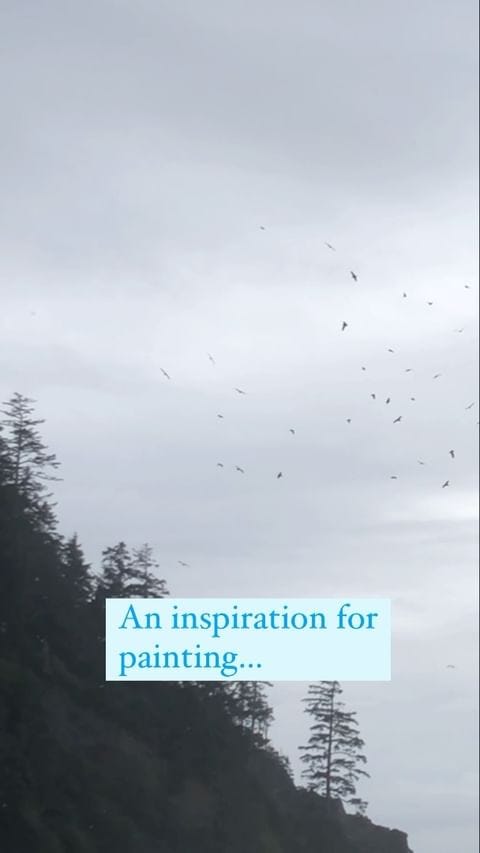

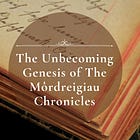
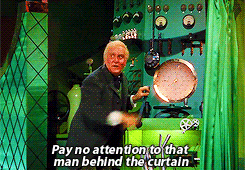
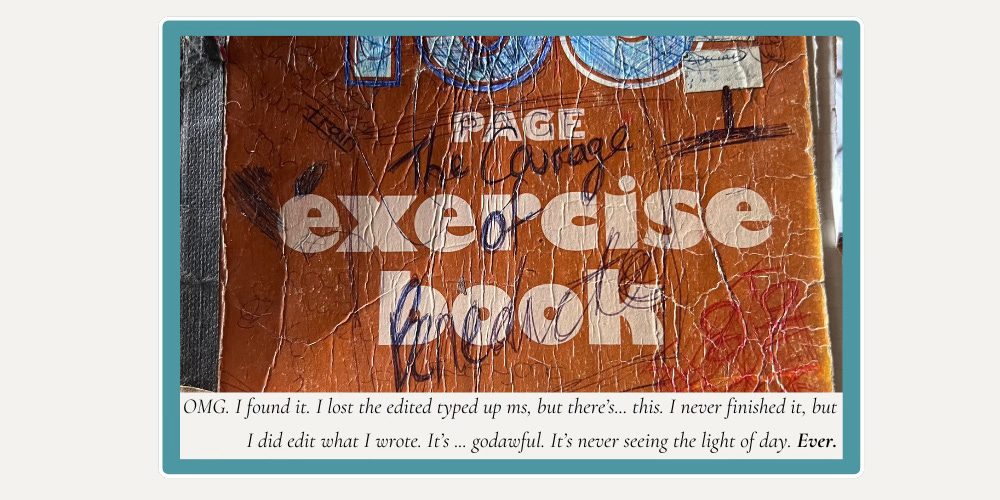
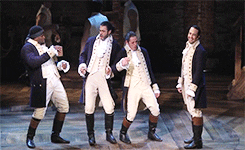



Loved gaining some insight about your creative process Leanne! I relate to being an avid reader as a child and having an interest in history that helped shape me as a writer